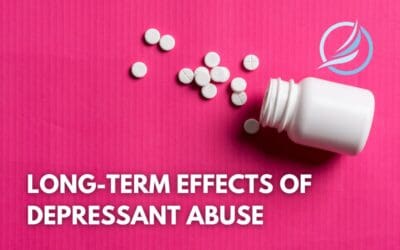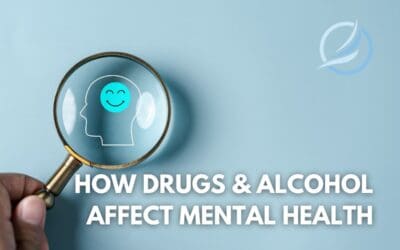Before discussing the link between alcoholism and depression, it is important to understand the concept of depression itself first, since psychology is behind both conditions. There is still a lot of misinformation regarding the subject, as people suffering from depression can go through their lives without a proper diagnosis or treatment. Meanwhile, we now live in a culture where people not only self-diagnose but also self-medicate constantly, increasing their chances of triggering other illnesses or not treating the one they truly have.
First of all, grief and sadness are different from depression. Many tend to think that feeling sad is enough reason to believe they might suffer from depression. Feelings of sadness or unmotivated can be understandable, especially if there is something triggering them – the death of a loved one, unemployment, a serious breakup, and/or many other reasons. So before becoming concerned with yourself or someone else, consider whether something could be bringing on these thoughts and sensations.
Additionally, there are many different kinds of depression out there with different symptoms to each of them. Depression is not always equivalent to feeling down all the time. This means that the only way to truly know if the issue to be dealt with is depression is by getting an official diagnosis from a professional health care provider, such as a therapist or a psychiatrist.
Nonetheless, there are some common symptoms of depression that could be signs that something is wrong, such as:
- Changes in appetite (eating too much or too little)
- Erratic sleep cycles (Insomnia or oversleeping)
- Lack of energy and fatigue
- Negative self-image
- Difficulty making decisions and/or concentrating
- Feelings of sadness, hopelessness, or guilt
- Loss of interest in general
According to the American Psychiatric Association, a diagnosis should be considered once these feelings (multiple, not just one or two) have been displayed for over two weeks.
How Are Depression and Alcoholism Connected?
Alcoholism or any type of addiction is a complex illness in and of itself, even though many do not seem to realize that nor consider it as such. As it would be with any other illness, it requires proper diagnosis and medical attention, and if it goes untreated, it will most likely only get worse. But just like it is with depression, it is only possible to know whether someone is suffering from it with an official diagnosis from a professional.
As exposure to alcohol is common and can start at formative years such as high school, we are constantly drinking “according to our emotions”, no matter if they’re negative or positive – drinking after a rough week, birthdays or bachelor and bachelorette parties with open bars to celebrate, and the list goes on. That’s not to say these moments will automatically make someone an alcoholic, as the occasional drink shouldn’t be too harmful if done responsibly. However, many have high chances of turning to alcohol more often, and eventually, even too often. Factors such as family history and chemical imbalances can all make a person more likely to do so.
Long-term, frequent drinking will not only worsen one’s health through the effects of alcohol on the body but if the drinker also has another mental illness, those symptoms will also be aggravated. Most people who do suffer from psychiatric disorders such as depression often seek drinking as a coping mechanism for their feelings.
Alcohol acts as a depressant, making the person feel more relaxed when they drink. When this becomes more frequent, the quantity of alcohol needed to get the same effects keeps on increasing, and that’s when symptoms of depression get worse. Another problem people suffering from depression might face when they become addicted to drinking is that alcohol can decrease the effectiveness of antidepressants.
What are Dual-Diagnoses or Co-occurring Disorders?
Becoming addicted and suffering from depression is not impossible. It is, in fact, quite common for addicts in general, not just alcoholics, to report that they also have been diagnosed with a psychiatric disorder. According to the National Institute on Drug Abuse, 6 out of 10 substance abusers have at least one other mental disorder, so, therefore, dual-diagnosis happen more often than not.
A person who suffers from any two disorders, like depression and alcoholism, is considered a dual-diagnosis patient, as they have in fact received two diagnoses. These disorders are also referred to as co-occurring disorders. It is still not very clear how is it that they are connected or which “comes first”, but research has confirmed that the two affect and feed off of each other.
In some cases, the symptoms of psychiatric disorders manifest themselves, and the person reaches out to substances for help to deal with them. In others, the use of substances triggers a “dormant” illness that could have been brought on by other factors if not substance abuse. Each case differs, but it is clear that a number of issues play a role in triggering both disorders.
Treatment for this condition is available to many, although methods may differ. Multiple studies have tried different approaches, such as sequential, parallel, or integrated methods. Each of them differs in the order they treat each illness: the first, treat the most acute disorder first, and then the second afterward; the next is based on treating both illnesses by separate teams, and the latter considers it best for both disorders to be treated at once by the same team.
You Can Get The Help You Need
If you suffer from alcoholism and depression, or any other co-occurring disorders, it might feel twice as hard to quit. But it does not have to be. With the right team on your side, you can be sure to get the treatment you need for both illnesses and move on to a better chapter in your life.
We at The Freedom Center have program plans that can help dual-diagnosis patients, focusing not just on the detox stage of the process, but on giving the patient the emotional support, treatment, and guidance needed so they can be ready to adapt to their new lifestyle once they leave our facilities. Contact our team of prepared professionals at (888) 530-5023, they answer all the questions you might have as you take the first step towards recovery.


































